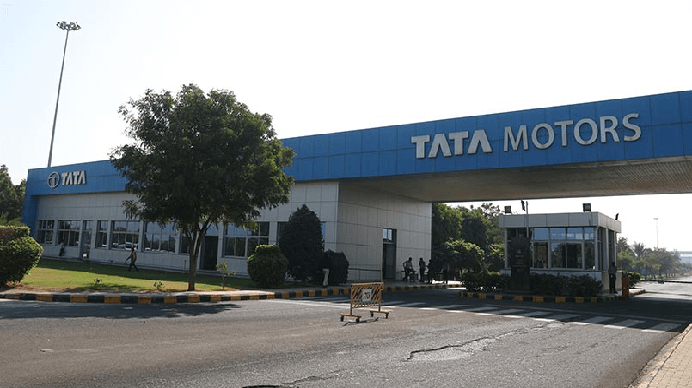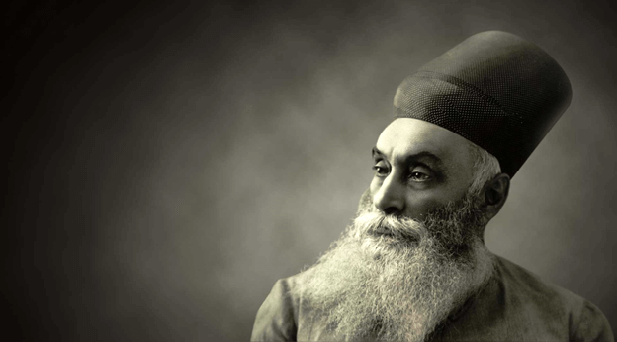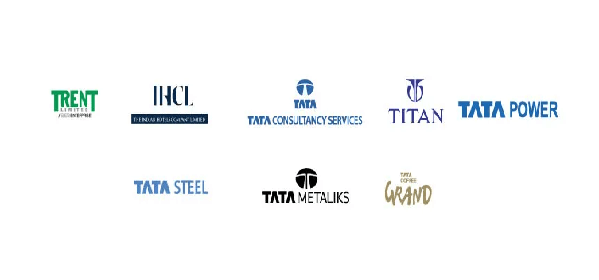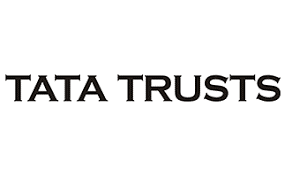Tata CompanyThe Tata Group is a very sizable corporate group with its headquarters in Mumbai, Maharashtra, India. Jamsetji Tata founded the business in 1868 after acquiring several well-known corporations. 
The Tata Group, one of the giant corporations in India, is owned by Tata Sons. It was established 153 years ago, in 1868, making it one of the nation's largest and most established corporations. Every Tata firm has its board of directors and stockholders, and each runs autonomously while being guided and governed by that board. HistoryHere we will try to understand the long back history of TATA Company thoroughly. 1. The BeginningJamsetji Tata established an exchange company in 1868 with a capital of 21,000 INR.He acquired a failed Chinchpokli oil facility, turned it into the Alexandra Mill cotton factory, and then two years later sold it for a profit. In Nagpur, he founded the Empress Mill, a brand-new cotton mill, in 1874. 2. Jamsetji Tata's WishHis plans included building a hydropower plant, a top-tier educational facility, an iron and steel company, and an exceptional inn. During his lifetime, the Taj Mahal Hotel on the Colaba waterfront was opened in 1903. 3. The Era of Dorabji TataAfter his father passed away in 1904, Dorabji Tata, Jamsetji Tata's son, took the position of Chairman. Sir Dorabji founded the Tata Iron and Steel Company (TISCO), now Tata Steel, in 1907. Tata Limited opened its first international office in London to symbolize the group's goals for a worldwide presence. The first hydroelectric plant in Western India was constructed following Jamsetiji's wishes after the Indian Institute of Science was established in 1911. 4. The Golden Tenure Of J.R.D. TataIn 1938, J.R.D. Tata was appointed Chairman of the Tata Group. The Tata Group's profits increased from $100 million to nearly $5 billion during his presidency. When he took control of TATA, there were 14 projects, but by 1988 Tata Sons had expanded into a company with 95 projects. These activities included projects in which the organization had either started or had a controlling stake. 5. The Beginning of TATA AirlinesTata Air Services was established in 1952 by J.R.D. (later renamed Tata Airlines). With the approval of the Air Corporations Act in 1953, the Indian government could purchase a more significant percentage of the airline from Tata Sons and J.R.D. Tata remained in that position until 1977. 6. The Establishment of TATA MotorsWhen it was established in 1945, Tata Motors initially concentrated on the rail industry. After partnering with Daimler-Benz, it entered the commercial vehicle market in 1954. 7. The Era of Ratan TataThe Tata Group appointed Ratan Tata as its Chairman in 1991. Tata Group began acquiring several businesses, including Corus Group, Tetley, and Jaguar & Land Rover (2008). India's economy was also growing, which opened the door for international rivals. Natarajan Chandrasekaran was appointed administrator in 2017. A Little About the Founder Jamsetji Tata
On March 3, 1839, Indian pioneer Jamsetji Tata was born. He founded the Tata Group, which is currently the largest group of companies in the nation. He was the company's first chairman and remained in that capacity until 1904. Sir Jamsetji Tata has won several honours and awards. He was honoured with the name "Father of Indian Industry." He also took the first position in the list of "Hurun Philanthropists of the Century (2021)." Sir Jamsetji Tata died away on May 19, 1904, at the age of 65. Company Profile
Companies of TATA Group
Most of the shares in these businesses are owned by Tata Sons Limited, the holding company of the Tata Group. The Tata name and trademark are owned by Tata Sons Ltd and are registered in numerous nations, including India. Tata Power, Tata Global Beverages, Tata Steel, Tata Chemicals, Tata Motors, Tata Consultancy Services, Titan, Tata Capital, Indian Hotels, Tata Advanced Systems, and Tata Communications are some of the significant businesses that fall within the Tata Group. Let's discuss each in detail. 1. TATA SteelThe most significant division of the Tata Group is Tata Steel, which Dorabji Tata and Jamsetji Tata created on August 26, 1907. Tata Steel is an essential global steel production company located in Kolkata, India. It employs more than 80,000 people and trades in iron, cast iron, soft iron, alloys, etc. With yearly crude steel deliveries of 27.5 million tonnes, it is one of the top steel-producing businesses on the global market. With significant operations in India, the U.K., and the Netherlands, it works in 26 nations. 2. TATA MotorsTata Motors is a worldwide automobile manufacturing firm founded in 1945 as a train maker. Mumbai serves as the company's headquarters, and it trades in passenger cars, buses, trucks, sports cars, military vehicles, and machinery used in the construction industry. Tata Motors has automotive assembly facilities outside India in Thailand, South Korea, South Africa, Spain, and Britain. After being established, Tata Motors collaborated with Daimler-Benz to produce its first commercial car in 1954. It started selling passenger cars in 1988. 3. TATA Consultancy ServicesAccording to market capitalization, Tata Consultancy Services, or T.C.S., is the most prominent Indian corporation.It is a global Indian company that offers consultancy and I.T. services. Its headquarters is in Mumbai, Maharashtra. T.C.S. operates 149 sites throughout 46 countries. It currently ranks among the most valuable I.T. services brands in the world. T.C.S. owns 67 affiliate companies. In addition to capacity planning, business process outsourcing, hardware sizing, software management, payment processing, consulting, enterprise software and application development, and technology education services, they jointly provide a wide range of information technology-based goods and services. 4. TATA ChemicalsTata Chemicals Limited is a division of the Tata Group corporation and an international Indian firm concentrating on consumer goods, crop nutrition, and chemicals. It set out on its tours from Mithapur, Gujarat, in 1939. It is currently the third-largest soda manufacturer in the world, with factories located throughout Asia, North America, Europe, and Africa. The company's R&D facility is in Pune, Maharashtra. The company's products include chemicals, fertilizers, spices, consumer goods, bioenergy, beans, cement, fresh goods, dietary supplements, and water purifiers. 5. TATA Global BeveragesT.G.B., the 2nd biggest tea brand in the world, is a significant Indian subsidiary. From a domestic plantation company, it has developed into a global brand-focused enterprise with a diverse portfolio of brands. Tetley Super Green Tea, Tata Tea Masala, and Tata Tea Teaveda are the company's most recent product launches. The business has strategic partnerships with Pepsico for liquid beverages and Starbucks for caf�s across the nation. The 100-store goal for Starbucks, a Tata collaboration, was achieved in 2017. 6. TITANAnother significant component of the Tata Group is Titan. It is one of the top lifestyle businesses in the nation. It deals with the areas of jewellery, wristwatch, and eyeglasses with many famous brands. One of its products, the jewellery line under the Tanishq name, is one of India's most well-known lifestyle companies. Through its Titan eye plus store outlets, Titan dominates the eyewear industry. Sonata, Raaga, and Fastrack are a few of the company's other well-known brands. Taneira, a destination for quality silk sarees, is also introduced, along with its involvement in the perfume industry with Skinn. 7. TATA CapitalTata Capital, one of the most prominent NBFCs in the nation and a division of the Tata Group, is a one-stop market for financial solutions. It satisfies various financial needs for institutional, corporate, and retail clients. The firm is headquartered in Mumbai and has more than 100 branches. These are covered by consumer loans, business loans, infrastructure financing, etc. As an NBFC that accepts Systematic and structured Significant Accounts, the business is registered with the R.B.I. 8. TATA PowerElectricity generation, transmission, and distribution are the main businesses of Tata Power, an Indian electric utility. It is the largest integrated power company and led the energy industry in incorporating new technologies. It operates in Indonesia, South Africa, Singapore, Bhutan, and India. With its affiliates and partner ventures, Tata Power has 10857 MW of generating capacity, with 32% of its capacity coming from clean energy sources. The company's main objectives are conservation and green community solutions, leading the industry in these areas. With a 99 M.W. power generating capacity, Tata Power's Poolavadi wind power facility is situated in Tamil Nadu. 9. TATA Advanced SystemsTata Advanced Systems, a reputable manufacturing division of the Tata Group, is quickly emerging as the primary partner for significant aerospace and defence corporations. It has been given the deal for the Ministry of Defence's first private-sector military radar manufacture in India. The six essential elements covered are aerospace, UAVs, missiles, radars, and homeland security. 10. Indian HotelsJamsetji, the creator of the Tata Group, oversaw the construction of Mumbai's Taj Mahal Palace, the Country's first luxurious hotel. Its incomparable elegance, compassion, and ingenuity have established a standard for luxury living. The company manages 170 properties over more than eight sites in 12 countries. The corporation has significantly increased domestic business through physical and online platforms. It used a collaboration with MasterCard, Visa, American Express, and Tata S.I.A. Airlines. 11. TATA CommunicationsTata Communication has emerged as the top worldwide provider of digital infrastructure, sustaining the rapidly expanding digital economy of the modern era. It provides unified, globally managed services, such as network, cloud, mobility, IoT, and connectivity. Tata Communication links companies to 60% of the world's cloud giants and 4 out of 5 mobile customers, and it transmits over 30% of all internet traffic worldwide. A Few Facts Related to TATA GroupJamsetji Tata's son Dorabji Tata took over as group chairman after his father's passing. Under his direction, the organization significantly grew in several sectors, including education, steel, power, consumer products, and aviation. The firm expanded into other industries under Jehangir Ratanji Dadabhoy Tata (J.R.D.), including chemicals, cosmetics, technology, marketing, manufacturing, tea, and software services, and is today an Indian multinational company. Take a glance at a few fascinating Tata Group facts. 1. Tata Group Is Well-Known Around the WorldThis enormous corporation operates outside India. However, the Tata Group is present in 175 nations, giving it a global market footprint. With more than 8.5 million cars under the Tata brand, it is highly known in the automotive business. Tata Group offers goods and services on all seven continents and has a global consumer base. The firm has subsidiaries and over 29 brands spanning many industries. 2. Tata Group built the First Indigenous Car in the CountryThere are many international car manufacturers now in India. You'll be shocked to learn that the first indigenously produced vehicle in India was created in 1998 by TATA itself. This automobile gained popularity right away. More than 910K units of the Tata Indica, a supermini automobile, had been built by August 2008. By 2008-2009, sales of the same model automobile had increased to 144690 units annually. The model, nevertheless, was dropped in April 2018. 3. Tata built the First Sports Car in IndiaIndia's first racing vehicle, the Racemo, was produced by Tata Motors under the Tamo sub-brand. Its 190 PS engine can go from 0 to 100 km/h in 6 seconds. At the 87th Geneva Model Show, it was introduced. It was believed that there were two distinct models of the Racemo. The first was a road-based model, and the second was track-ready. It was anticipated that just a small batch of 250 models would be produced. The concept, however, was put on hold owing to financial concerns. 4. The Indian Army receives defence vehicles from TataTata has provided our Indian Army with military and modern warfare vehicles for many years. Defense Combat Light Armored Multi-Role Vehicles, Defense Light Support Vehicles, Defense Futuristic Infantry Combat Vehicles, Defense Combat Wheeled Armored Amphibious Platforms, and Defence Combat Light Armored Multi-Role Vehicles are some of their military vehicles. 5. Tata created the world's most expensive and least expensive carTATA Motors introduced the Tata Nano, the world's cheapest automobile, in 2008. It costs Rs. 1 lakh. Its 624cc gasoline engine generates 51Nm of torque and 37bhp of power. 2019 saw the end of this vehicle's manufacture. The vehicle was also presented as the first gold jewellery vehicle in history. It was created to commemorate India's 5000-year history of jewellery production and was made of gold, silver, and priceless stones. Over 22 crores were spent on this car. 6. The Tata Group Does Not Invest in the Alcohol or Tobacco IndustriesHowever, alcohol is a more significant industry in a nation like India. Despite diversifying its operations, the corporation never invested in the cigarette or alcohol industries. Even after being around for so long, the Tata Group has maintained its values. The Tata Group has never invested in the cigarette or alcohol industries. J J Irani, the director of Tata Sons, made the same claim on July 31, 2010. 7. The Tata Group has never sponsored a Bollywood filmMany sizable businesses attempt to invest once in the entertainment sector. However, it's essential to note that Tata has never funded a Bollywood film. However, the company co-produced the expensive film Aetbaar in 2003. The Tata group still produces a minimal number of movies. It is not a lie to imply that the Tata group likes to hold off on funding Bollywood movies unless an excellent opportunity presents itself. 8. The Tata Name Has Been a Leader in a Variety of ServicesTata built a solid foundation from the beginning for our emerging nation, offering the first brand of salt and creating the first steel factory in India. They also started electricity firms, I.T. services, and five-star hotels in India. Additionally, it was the first to arrange trademarked jewellery and market steel in India. With the addition of new companies to the market by the Tata Group, Tata now has a total of about 29 distinct subsidiaries. 9. Tata Motors-owned Jaguar Land RoverRatan Tata became the Chairman of the Tata Group and was crucial in acquiring significant companies. The purchase of Jaguar Land Rover is one of them. As a division of Tata Motors, Jaguar Land Rover is a British vehicle manufacturer, and it produces, creates, and markets vehicles with the same name. In 2008, Tata Group bought both businesses from Ford and combined them. 10. The Tata Logo Means Something SpecialThe well-known Wolff Olins agency is responsible for creating the Tata logo. The Tata Group's logo was created with great deliberation and significance. In essence, it stands for flexibility and adaptability. The company's goods are represented by the colour blue, which stands for quality, dependability, and strength. The logo can be seen as a knowledge fountain or, more likely, as a trust-building tree where individuals can seek comfort. Regardless matter the interpretation, the design has a profound significance. The Role of TATA Trust
One of India's oldest non-sectarian charitable organizations is the Tata Trusts. Two-thirds of the shares of Tata Sons, the parent firm of the Tata group of enterprises, are owned by the Trusts. The money generated by this asset benefits a wide range of institutions, organizations, and people in many fields. In this way, the communities where the Tata enterprises do business benefit significantly from their revenues. For more than a century, these resources have been used to support a wide range of programs for community development around the nation. Since its establishment, Tata Trusts have taken the lead in redefining conventional views of philanthropy and advancing the idea that it can improve societies. The Trusts encourage and promote innovation in enhancing civil society and governance, energy, rural livelihoods, media, arts, education, urban poverty alleviation, natural resource management, crafts, and culture, and diversified work opportunities through funding, direct execution, and co-partnership methodologies. The Trusts collaborate with knowledgeable people, governmental organizations, international organizations, and like-minded businesses to build a self-sustaining environment that functions across these fields. ConclusionIn a nutshell, the "Tata group" may be regarded as one of the most motivating characteristics for aspiring businesspeople. This specific commercial enterprise is a source of pride for India and a model of success for aspiring young entrepreneurs. The Tata Group has presented the world with numerous fresh instances. The mentioned article includes the company's essential information, including its journey, groups of companies, and a few other pieces of data.
Next TopicAccenture Company
|
 For Videos Join Our Youtube Channel: Join Now
For Videos Join Our Youtube Channel: Join Now
Feedback
- Send your Feedback to [email protected]
Help Others, Please Share









